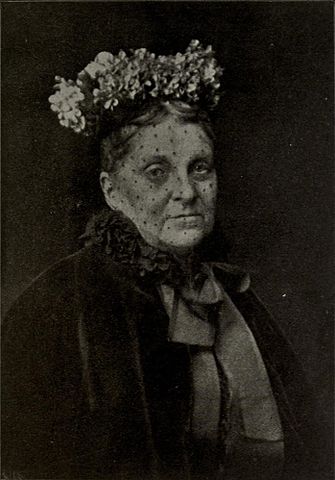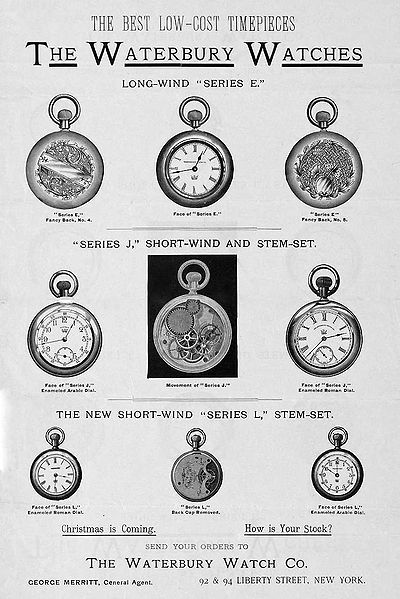 |
| Montana cowboys, c1910 |
These are from Marguerite Merington’s Scarlett of the
Mounted, about prospectors and law
enforcement in the Klondike, and Frederick Thickstun Clark’s In the
Valley of Havilah, about the fortunes of an
itinerant family in the California gold fields. Once again, I struck out on a
few. If anyone has a definition for “luck-slice,” “get a streak on,” “liver
exterminator,” “taffy on a shoestring,” or “make it snow,” leave a comment
below.
balmy on the crumpet =
insane, demented, eccentric. “Balmy on the
crumpet. Bats in his belfry. Qualifying for Queer Street. Plumb crazy. Poor old
Lucky!” Marguerite Merington, Scarlett of the Mounted.
beat = an outstanding person or thing. “Ma, did ye ever see
the beat? ’N’ a saw-hoss ’n’ a axe, ’n’—’n’ everything!” Frederick Thickstun
Clark, In the Valley of Havilah.
 |
| Belle Mahone, cover |
“Bell Mahone” =
sentimental ballad by J. H. McNaughton,
published 1867. “I dreamt I was dressed up beautiful in a ruffled gown ’n’
hoops ’n’ was a stan’in’ on a platform singin’ Sweet Belle Mahone like a bird
in a tree.” Frederick Thickstun Clark, In the Valley of Havilah.
bouncer = something exceptionally large of its kind. “Ain’t
she a strapper? Ain’t she a bouncer?” Frederick Thickstun Clark, In the
Valley of Havilah.
cheechako =
Chinook jargon for newcomer in the mining
districts of northwestern North America. “Now who’s this chee-charka coming up
the trail?” Marguerite Merington, Scarlett of the Mounted.
cheek = to address in an impudent or insolent manner. “I kin
cheek yer now I’m goin’ ter be hanged by U. S. law!” Marguerite Merington, Scarlett
of the Mounted.
cheese-headed =
brainless, stupid. “Seems to me any
parrotic, cheese-headed fool might a-seen he wan’t ’ere a hour ago.” Frederick
Thickstun Clark, In the Valley of Havilah.
cove = a fellow, chap. “He’s a lazy old cove, dad is.” Frederick
Thickstun Clark, In the Valley of Havilah.
fancy woman =
a kept mistress, a man’s lover. “The fancy-women
who flock wherever the nuggets are thickest, now segregate themselves in a
secluded quarter of the township.” Marguerite Merington, Scarlett of the
Mounted.
flax around =
bestir oneself. “Ye’d a flaxed around’ ’n’
kep’ healthy—that’s what’s kep’ me a-goin’ all these years.” Frederick
Thickstun Clark, In the Valley of Havilah.
flop a lip over =
to eat, taste. “The best bread ye ever
flopped a lip over.” Frederick Thickstun Clark, In the Valley of Havilah.
 |
| Flycatcher |
flycatcher =
an insect-eating songbird. “There was a
dead silence, broken only by the fly-catcher’s mocking refrain.” Marguerite
Merington, Scarlett of the Mounted.
forninst =
opposite to, facing; alongside. “Chilkat
Jo, man, look what devil’s work is going on forninst ye! Can’t ye say the word
to stop it?” Marguerite Merington, Scarlett of the Mounted.
forty ways from the jack = in every way possible.
“He’s the only man ever got me skinned forty ways from the Jack.” Marguerite
Merington, Scarlett of the Mounted.
gad = a goad; point or stick used for driving draught
animals. “He poked ’er in the ribs with the butt o’ his gad.” Frederick
Thickstun Clark, In the Valley of Havilah.
go bail = to be absolutely certain. “They’s lots o’ folks ’t
can easier drop a tear as a penny, but you ain’t that sort, I’ll go bail to
say.” Frederick Thickstun Clark, In the Valley of Havilah.
gospel mill =
a church. “Nick rubbed astonished eyes.
‘By gum, a Gospel-mill!’ ‘Aye, and filled to overflowing every Sabbath,
Nicholas,’ proudly stated good Maclane.” Marguerite Merington, Scarlett of
the Mounted.
 |
| Hetty Green, c1905 |
Green, Hetty =
an American businesswoman (1834-1916),
remarkable for her frugality during the Gilded Age, as well as for being the
first American woman to make a substantial impact on Wall Street. “He claims he
owns an antimony proposition that if developed ull make J. Peerpunt Morgan take
a back seat and Hetty Green look like thirty cents.” Marguerite Merington, Scarlett
of the Mounted.
griping = clutching tightly. “Maud Eliza, certain that the
battle was about to be renewed, caught her breath in a sort of ecstasy, then
threw her dingy apron over her head and relapsed into griping convulsions of
unrestrained giggles.” Frederick Thickstun Clark, In the Valley of Havilah.
Hannah = euphemism for the deity; used in various mild oaths,
e.g. so help me Hannah. “How in the name o’ Hanner they manage to keep so fat,
I can’t see.” Frederick Thickstun Clark, In the Valley of Havilah.
helve = a handle of a tool or weapon. “Leaning the head of
his ax against a rock while he braced his elbow against the helve and looked
around him.” Frederick Thickstun Clark, In the Valley of Havilah.
jigger = a gadget, small mechanical contrivance. “Is this
’ere jigger in the pipe a damper?” Frederick Thickstun Clark, In the Valley
of Havilah.
kick up = a dance, a party. “Lor’ won’t we have a kick-up here
all by ourselves!” Frederick Thickstun Clark, In the Valley of Havilah.
kit and posse =
the lot, the whole thing. “I’ve been too
good to the hull kit ’n’ possy o’ ye.” Frederick Thickstun Clark, In the
Valley of Havilah.
lay = a share in a venture. “You must get employment on a
lay—that is, you must induce some one to let you help work his claim on
shares.” Marguerite Merington, Scarlett of the Mounted.
Massic wine =
a wine much praised in classical times
from Campania, Italy. “The sunshine affects you like Roman goblets of Massic
wine.” Frederick Thickstun Clark, In the Valley of Havilah.
oh-be-joyful =
liquor. “He paid two bits at the last
tavern for his finger of the oh-be-joyful.” Frederick Thickstun Clark, In
the Valley of Havilah.
omadhaun =
fool, simpleton, idiot (Irish). “Wid a
felly like himself, that dhrunk or sober is aqually an omadhaun, phwat the
divvle is the differ?” Marguerite Merington, Scarlett of the Mounted.
peeling = a
scolding. “What a peelin’ ye did give ’im.
It made my hair pull to hear ye!” Frederick Thickstun Clark, In the Valley
of Havilah.
plunk = a dollar. “You stake yer bottom plunk on it, d’ye
see?” Marguerite Merington, Scarlett of the Mounted.
Queer Street =
any difficult situation. “Balmy on the
crumpet. Bats in his belfry. Qualifying for Queer Street. Plumb crazy. Poor old
Lucky!” Marguerite Merington, Scarlett of the Mounted.
rating = a scolding. “Could she really have given Hulse a
rating for such a trifle as that?” Frederick Thickstun Clark, In the Valley
of Havilah.
rill = to flow through. “A sudden hope rilled him.” Frederick
Thickstun Clark, In the Valley of Havilah.
rubber = to look around. “Well, I s’pose the game is ter lay
low, rubber round till we locate the claim, and jump it.” Marguerite Merington,
Scarlett of the Mounted.
sawney = a fool. “Lor’, I’ve heerd tell o’ their sayin’s,
sometimes, ’n’ seems to me like they mus’ be awful sawneys.” Frederick
Thickstun Clark, In the Valley of Havilah.
 |
| Settlement house children, 1914 |
settlement =
an establishment in a poor part of a large
city lived in by people engaged or interested in social work or reform. “I
spend a week every Lent in a Settlement, and we came up here to do good.” Marguerite
Merington, Scarlett of the Mounted.
sonsy = plump, buxom, comely; cheerful, good-natured (Scot,
Irish). “Sarah is nae bonny, but she micht be sonsy and of a savin’
disposeetion.” Marguerite Merington, Scarlett of the Mounted.
spit on your money at new moon = a
superstition, believed to bring good luck. “The mere mention of it brings
better fortin’ than touchin’ a hunchback, or spittin’ on your money at new
moon.” Marguerite Merington, Scarlett of the Mounted.
square-toed =
old-fashioned, formal, prim. “When I got
anything to say, I jes’ march up square-toed ’n say it—that’s me!” Frederick
Thickstun Clark, In the Valley of Havilah.
strapper =
a big, strong person; a notably hard
worker. “Man alive, jes’ look at that air gal’s shape! Ain’t she a strapper?” Frederick
Thickstun Clark, In the Valley of Havilah.
tires = clothes, attire. “Men and women with wrinkles in
their tires whose smoothing out must be the work of divine hands.” Frederick
Thickstun Clark, In the Valley of Havilah.
top boot =
a high boot usually having its upper part
made of a different material or with leather of a contrasting color or texture.
“The shaggy picturesqueness of the prospectors in colored flannel shirts, top
boots and corduroys, with hands ever on gun or pistol, their odd phrase and
lurid expletive, touched the silly streak of romanticism in her.” Marguerite
Merington, Scarlett of the Mounted.
 |
| Advertisement, Waterbury watches |
touch a hunchback =
a superstition, believed to bring good
luck. “The mere mention of it brings better fortin’ than touchin’ a hunchback.”
Marguerite Merington, Scarlett of the Mounted.
turkey = to gather around, follow, move about. “How the
fellers used to come a-turkeyin’ around after me in them days!” Frederick
Thickstun Clark, In the Valley of Havilah.
Waterbury watch =
an inexpensive pocket watch produced
1880s-1890s by the Waterbury Watch Company in Connecticut; often given free
with purchase of cheaply made clothing and other products, thus associated with
shoddy workmanship. “Ye can wind up me affairs and welcome if ye’ll take the
time. They’re just the Waterbury watch inside me pocket.” Marguerite Merington,
Scarlett of the Mounted.
windmill =
emitter of wind. “Naw! Only some blasted
holy windmill come for to save our souls.” Marguerite Merington, Scarlett of
the Mounted.
Image credits:
Wikimedia Commons
Coming up: Alfred
Henry Lewis, Wolfville (1897)
There sure were a bunch of these old words and sayings, colloquialisms, among the various groups and types. Thanks.
ReplyDeleteI'm very fond of 'flop a lip over'
ReplyDeleteI have been enjoying "Old West glossary," Ron, and it's really going good at No.39. A novel idea. I particularly liked "spit on your money at new moon" which, had I not read what it means, could refer to anything.
ReplyDeleteSeveral of the Merington ones sound very English—I've seen them in British-authored books too. A lot of the time the phrase "in Queer Street" meant in financial trouble.
ReplyDelete